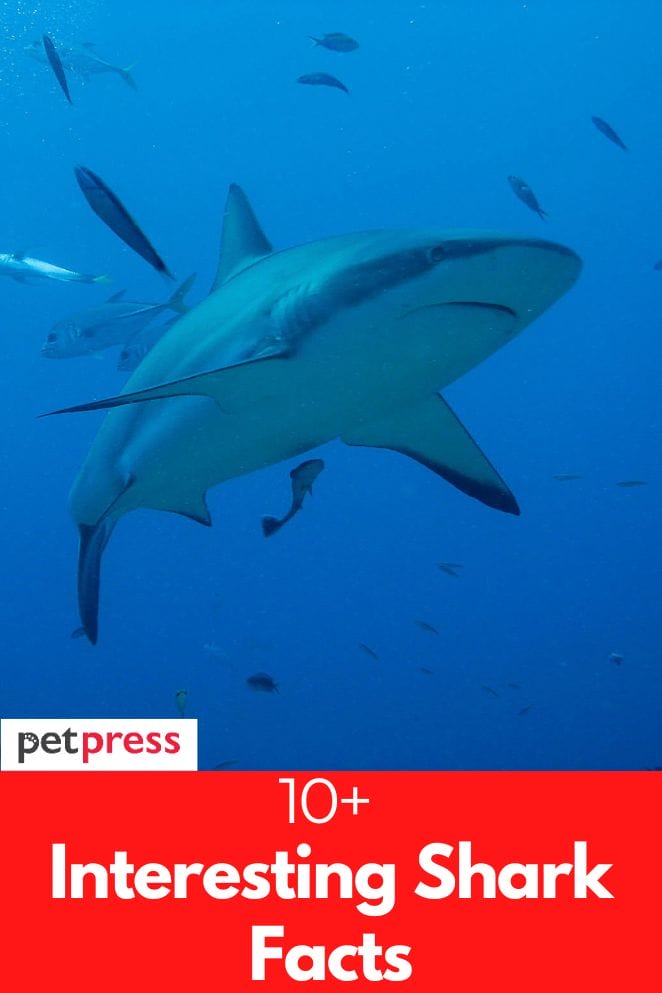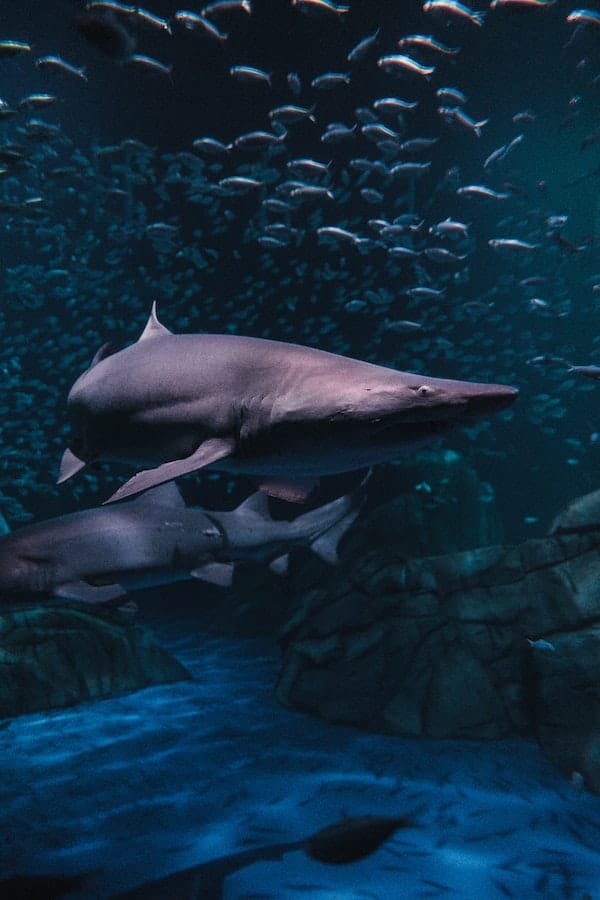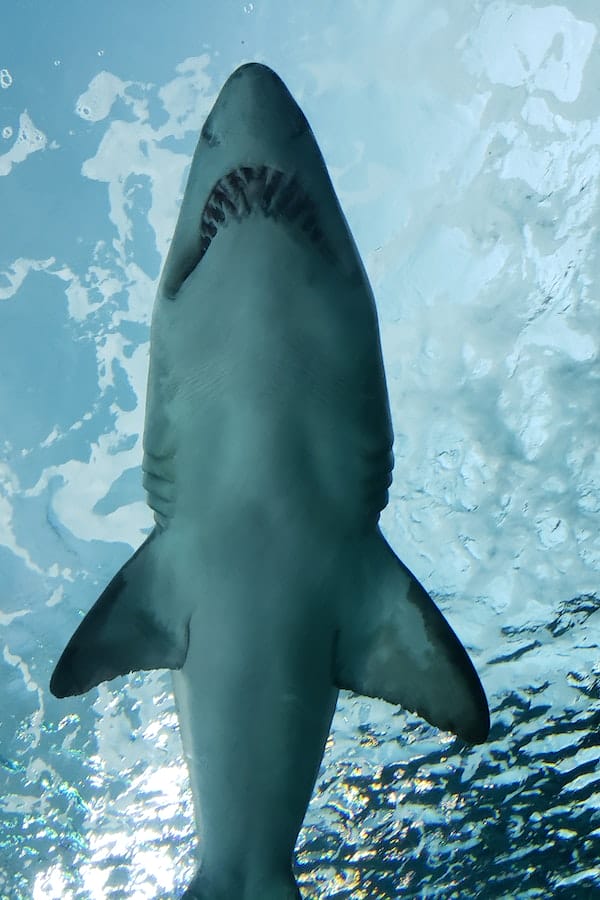
Sharks are one of the most fascinating and intriguing animals on the planet.
With their sleek bodies, powerful jaws, and razor-sharp teeth, they have captured the attention of scientists, filmmakers, and nature lovers alike.
Whether you are a seasoned shark enthusiast or just curious about these incredible creatures, here are some interesting facts that will help you better understand and appreciate these amazing animals.
Fact #1: Sharks have been around for over 400 million years.
Sharks have been around for over 400 million years, making them one of the oldest and most enduring animals on Earth.
Despite rapidly changing environments and centuries of human exploitation, they persist and thrive throughout the ages.
Their incredible resilience, combined with their unique adaptations and biological features, make sharks one of the most fascinating and intriguing animals on the planet.
Fact #2: Sharks are found in all oceans of the world.
Sharks are found in all oceans of the world, from the freezing waters of the Arctic to the scorching heat of the tropics.
Despite their diversity, sharks are highly specialized to survive in their respective environments.
They have streamlined bodies that help them swim faster and more efficiently, strong jaws with rows of razor-sharp teeth for capturing and killing prey, and unique senses that allow them to detect food, threats, and potential mates from great distances.
Fact #3: There are over 500 different species of sharks.

There are over 500 different species of sharks, spanning a wide range of shapes and sizes.
These incredible animals have evolved to thrive in various environments, from the cold waters of the Arctic to the warm tropical seas.
Fact #4: The largest shark is the whale shark.
The largest shark is the whale shark, which can grow up to 60 feet long.
This impressive creature is one of the largest and most formidable sharks in the world, with a massive body and powerful jaws allow it to capture and feed on large prey.
Fact #5: The smallest shark is the dwarf lantern shark.
The dwarf lantern shark is one of the smallest sharks in the world, growing to only about 8 inches in length.
This tiny creature has a sleek body and powerful jaws that allow it to capture and feed on its prey with ease.
Despite its small size, the dwarf lantern shark is an excellent hunter, using its keen sense of smell and specialized sensory organs to detect and track its prey.
Fact #6: Sharks can sense electrical fields in the water.
Sharks are susceptible animals, capable of sensing a wide range of environmental stimuli.
One of the ways that they do this is through their ability to sense electrical fields in the water, which helps them to locate and track prey with accuracy.
This unique sensory ability allows sharks to detect tiny electric pulses generated by other organisms, allowing them to quickly and easily find food in their watery environment.
In addition to providing an important source of nourishment, this ability also helps sharks to avoid predators and navigate safely in the deep ocean waters where they live.
- Related post: Best Shark Name Ideas
- Related post: Fantastic Shark Tattoo Designs
Fact #7: Sharks have a keen sense of smell.

Sharks are well known for their powerful senses, and their keen sense of smell is perhaps one of the most notable.
This allows them to detect even the faintest traces of blood in the water from up to a mile away, making them incredibly efficient hunters.
In addition to using this ability to locate prey, sharks can also use it to detect threats, allowing them to quickly and easily identify potential sources of danger in their environment.
Fact #8: Sharks have rows of sharp teeth constantly being replaced.
Sharks are well known for their rows of sharp teeth, which help them to capture and kill their prey with ease.
These teeth are constantly being replaced throughout the sharks’ lifetime, allowing them to stay sharp and effective no matter how many meals they take down.
Fact #9: Some sharks can swim up to 20 miles per hour.
Many species of sharks have been documented as capable of swimming at speeds of up to 20 miles per hour, making them some of the fastest swimmers in the animal kingdom.
This incredible speed allows them to quickly and easily track down prey and helps them avoid potential threats in their environment.
Fact #10: Shark skin is covered in tiny tooth-like structures called dermal denticles.
Shark skin is covered in tiny tooth-like structures called dermal denticles, which help to reduce drag and increase speed while swimming.
These features are incredibly effective at reducing the amount of friction the shark encounters as it moves through the water, allowing it to swim more quickly and efficiently than many other types of marine animals.
Additionally, dermal denticles also help to protect the shark from injury and infection, making them a vital part of its skin and an important tool in its ability to survive and thrive in the ocean environment.
Fact #11: Most sharks are not dangerous to humans, but there are a few species that pose a threat.
Most sharks are not dangerous to humans, and in fact, they are an important part of the marine ecosystem.
However, there are a few species that do pose a threat to humans, including the great white shark, tiger shark, and bull shark.
These animals are known for their powerful jaws and sharp teeth, which allow them to easily capture and kill prey.

Fact #12: Shark attacks on humans are rare.
Shark attacks on humans are relatively rare, with only about 80 occurring yearly.
Despite this fact, sharks are often feared and misunderstood by people, who may be unaware of the important role that they play in the ocean ecosystem.
Fact #13: Most sharks live to be about 20-30 years old, but some species can live for over 100 years.
Sharks are long-lived animals, typically living to be about 20-30 years old.
However, some shark species can live for much longer than this, with some known to survive for over 100 years.
This longevity is likely because sharks have evolved many physiological adaptations that help them to thrive in their marine environment.
Overall, sharks are an important and fascinating part of the marine ecosystem.
While they may be feared and misunderstood by some people, they play a crucial role in maintaining balance in the ocean, and their impressive abilities allow them to thrive in their environment.
Whether we like it or not, these animals are here to stay, and we should do our best to learn more about them and appreciate the important role that they play in our world.


GIPHY App Key not set. Please check settings